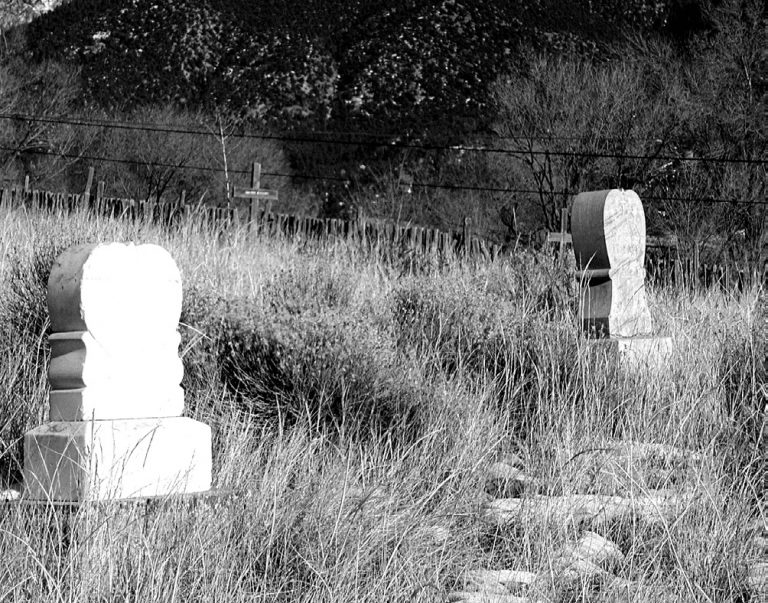They had valerios for the dead and they would sing hymns called “Alavados.” Also velarios
for the Santos. These alavados were a little different. When a person died, they made the coffins from pine wood and covered them with a nice material. If it was in the winter, after the rosary that was held in the home, the dead person was put in a cold room. Someone would stay up with the dead person all night. In the summer, they would take the body outside in a cool place. They weren’t embalmed. The next day they would have the burial. We didn’t see a funeral home here until the later 1960s. They came from Taos and still do.
Here is an example of an alavada from this area that is in The Juan B. Rael Collection of Music and Culture of the Northern Rio Grande.
A la Muerte, Pecador
A la muerte, pecador,
ya todo se acabará,
a la muerte, pecador, el Señor te juzgará.
La sibila y David dicen que en aquel día de ira,
la gran máquina del mundo se convertirá en ceniza.
¡Cuán grande será el temor cuando Cristo, con devisa
del juez venga a tomar cuenta rigurosa de la vida!
Convocará una trompeta terrible que será oída
en todo el mundo a los muertos para que ante el trono asista.
Llena la naturaleza
de espanto y la muerte misma, verán cuando al ser juzgados todo hombre que resucita.
To Death, Sinner To death, sinner, everything is ending, to death, sinner,
the Lord will judge you.
The sibyl and David say that on that day of wrath,
the great engine of the world will turn into ashes.
How great will be the fear when Christ, with the emblem
of judges comes to take rigorous account of life!
A trumpet will make the convocation terrible will it be heard
in all the world the dead will hear so they will appear at the throne.
Nature will be full
of fear and death itself, when to be judged
all mankind will be raised.

